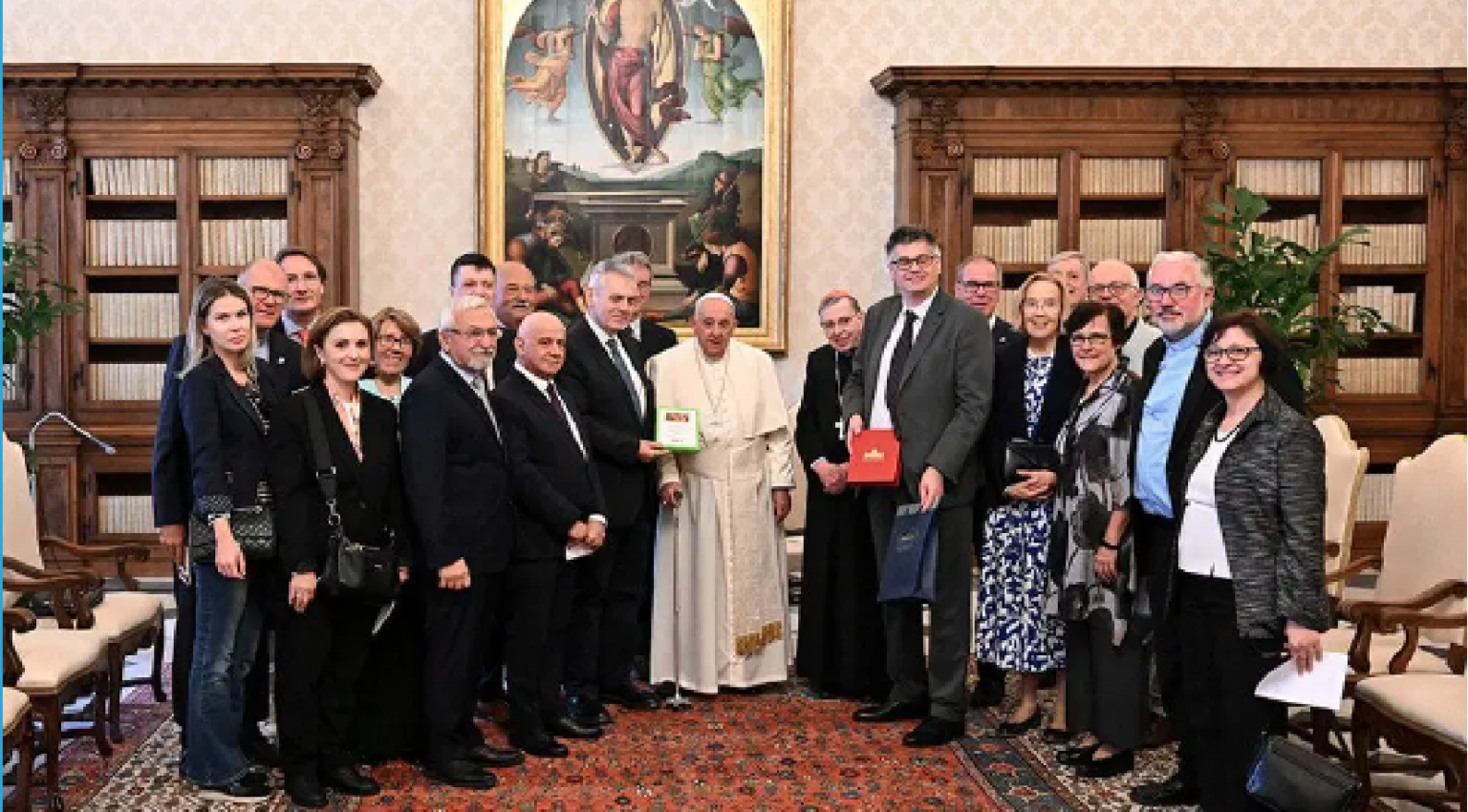The ecumenical group «Pasqua Together 2025» (Easter Together 2025) was received by Pope Francis at the Apostolic Palace in Vatican City on the morning of Thursday, September 19. A few days earlier, they were also received in an audience by the Patriarch of Constantinople, Bartholomew I.
The group asked both Christian leaders that the joint celebration of the Resurrection next year not be an exception, but become a regular practice for all Christian Churches—another step towards unity, in preparation for the upcoming Second Millennium of Redemption in 2033, when the 2000th anniversary of Christ’s Resurrection will be celebrated.
«Pasqua Together 2025» was born with the upcoming extraordinary anniversary in mind. In 2025, the date of Easter in both the Gregorian and Julian calendars will coincide, meaning Christians from both Western and Orthodox Churches will celebrate Easter on the same day. Additionally, the 1700th anniversary of the First Ecumenical Council of Nicaea, which promulgated the Nicene Creed and addressed the date of Easter, will also be commemorated.
We now offer the words that the Pope addressed to them during the audience.
***
Dear brothers and sisters,
I welcome you with the words of Saint Paul: “Grace to you and peace from God our Father and the Lord Jesus Christ” (Rom 1:7). I greet Cardinal Kurt Koch, Prefect of the Dicastery for Promoting Christian Unity, and I thank you for your words.
You represent different organizations and communities: first of all the Christian confessions you belong to, then Lay Associations and Movements, and finally the various spheres of action that unite you, such as politics and the preparation for the coming Second Millennium of Redemption in 2033 and other similar initiatives.
The Pasqua Together initiative carries out common projects in all these fields. I congratulate you and encourage you to continue. Indeed, your commitment in these areas will surely help you to avoid letting the important occasion of 2025 pass by in vain. Next year, which is an ordinary Jubilee year for the Catholic Church, the celebration of Easter will coincide in the calendars of all Christians. Along with this important sign, we will also commemorate the 1700th anniversary of the celebration of the first Ecumenical Council of Nicaea. In addition to promulgating the Symbol of Faith, this council also dealt with the issue of the date of Easter because different traditions had already arisen by then.
On more than one occasion, I have been asked to seek a solution to this issue, so that the common celebration of the Day of the Resurrection may no longer be an exception, but rather become the norm. I therefore encourage those who are committed to this journey to persevere, and to make every effort in the search for a shared agreement, avoiding anything that may instead lead to further divisions among our brothers and sisters.
Above all, however, I would like to share with everyone a thought, which takes us back to the heart of the issue: Easter does not take place by our own initiative or by one calendar or another. Easter occurred because God “so loved the world that he gave his only Son, that whoever believes in him should not perish but have eternal life” (Jn 3:16). Let us not forget the primacy of God, his primerear, his having taken the first step. Let us not close ourselves within our own ideas, plans, calendars, or “our” Easter. Easter belongs to Christ! Moreover, it is good for us to ask for the grace to be ever more his disciples, allowing him to be the one to show us the way we should follow. We must humbly accept the invitation he one day made to Peter to follow in his footsteps, and not to think as human beings do, but as God does (cf. Mk 8:33).
Let us therefore seek to reflect, share and plan together, keeping Jesus before us, grateful for his call and eager, in unity, to become his witnesses, so that the world may believe (cf. Jn 17:21). We need to walk together. To do so, it will help us if we begin from Jerusalem like the Apostles, who proclaimed the message of the Resurrection to the whole world starting from that holy city. Let us also turn, today, to the Prince of Peace in order to pray that he give us his peace.
Dear brothers and sisters, may the Lord bless and reward you for what you do. I thank you for this meeting. I pray for you, and please do not forget to pray for me.
By ZENIT News






